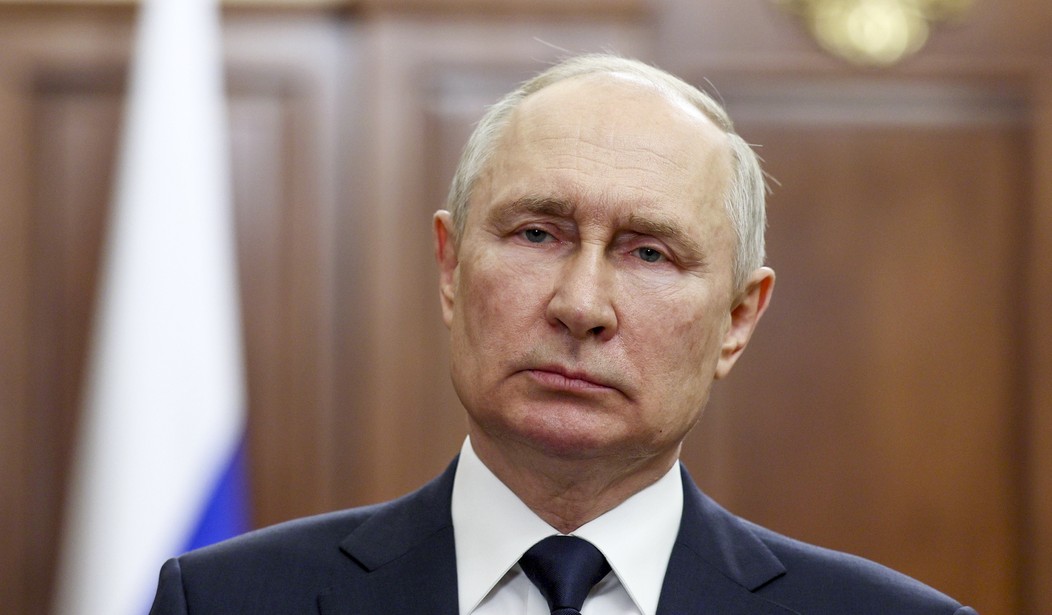WASHINGTON -- While verifying the authenticity of quotes in my new book, "How Do We Get Out of Here? Half a Century of Laughter and Mayhem at The American Spectator -- from Bobby Kennedy to Donald J. Trump," I was brought to a standstill by one quote in particular. It is the work of a very fine historian done some 20 years ago, Helene Carrere d'Encausse. The quote reads as though it was a headline from the day's newspaper.
In her book, "The Russian Syndrome: One Thousand Years of Political Murder," she writes, "The history of Russia is first and foremost a continuous history of political murder." (My emphasis.) The book is one of the most scholarly books I have ever read and one of the most blood-drenched books I have ever read. I do not even think a history of Hitler's Germany could match d'Encausse's work, though Cpl. Hitler only had some 15 years in which to work his deviltry. d'Encausse had 1,000 years to work with and with millions of people to slaughter. Stalin alone kicked in millions.
The most recent Russian added to the carnage was Yevgeny Prigozhin, who was numbered amongst the ten or so casualties who went down on the ill-fated airplane traveling to St. Petersburg from Moscow late last month. The Russian authorities still do not know what brought it down, so they say, though our CIA believes it was a bomb planted aboard the airplane by some of Czar Vladimir Putin's servitors. If Czar Putin's boys did not get Prigozhin, it was only a matter of time until the International Criminal Court at The Hague picked him up. He committed some grisly acts when he was upright and in one piece.
For that matter, Czar Putin is responsible for some grisly deaths that the international court is already interested in and has barged Putin from leisurely international travel. Doubtless, his day will come, though I doubt it will be in the cushy precincts of the Hague. More likely, he will be another name on d'Encausse's long list of political murders committed by Putin's countrymen.
Recommended
Yet now, a new voice is being heard, adding his two bits to the conversation about hostilities between Russia and Ukraine. His is an unlikely commentary. It comes from Pope Francis, and he is abundant with praise for two 18th-century Russian rulers, Peter the Great and Catherine the Great. He calls them rulers of a "great, enlightened empire of great culture and great humanity." That is to say, they were "enlightened" so long as one did not get on the wrong side of them.
It turns out that Putin, too, is a fan of Peter and Catherine. Putin cites Peter the Great for expanding Russian territory and curtailing Ukrainian autonomy. As for Catherine, she aided the Jesuits when they were being persecuted, and she presided over Russia when Russia extended its authority over parts of southern Russia in the second half of the 18th century. Needless to say, all of this made the two monarchs immensely popular with Putin and the present Kremlin hierarchy. The Ukrainians thought otherwise.
Oleg Nikolenko, a spokesman for the Ukrainian Foreign Ministry, dismissed the pope's words as "imperialist propaganda" typical of the Kremlin's propaganda to justify its invasion of Ukraine. A Ukrainian Greek Catholic Church leader responded to the pope's remarks as "the worst example of extreme Russian imperialism and nationalism." And a former Estonian president, Toomas Hendrik Ilves, denounced the pope's remarks as "truly revolting." Doubtless, the pope's list of critics is lengthening.
Yet those of us who have marveled at the pope's recent remarks we are wondering why he bothered to talk about Eastern European politics or, for that matter, the cultural achievements of Peter the Great and Catherine the Great. Why did he not stick with current events? What about Prigozhin? What about Czar Putin? When will Czar Putin be added to d'Encausse's list of the political butchered?
Glory to Ukraine!
R. Emmett Tyrrell Jr. is the founder and editor-in-chief of The American Spectator. He is a Senior Fellow at the London Center for Policy Research and the author most recently of "The Death of Liberalism," published by Thomas Nelson, Inc.

























Join the conversation as a VIP Member